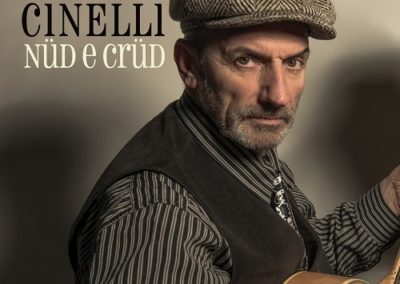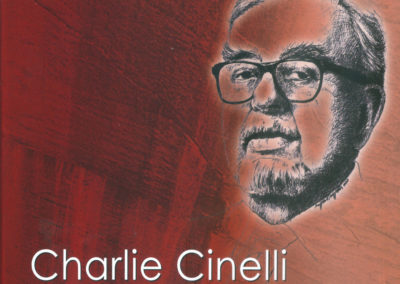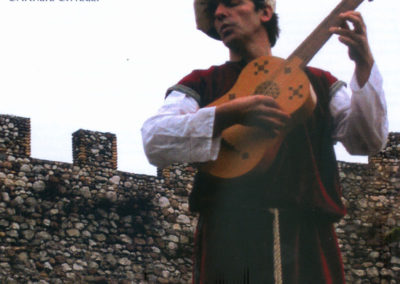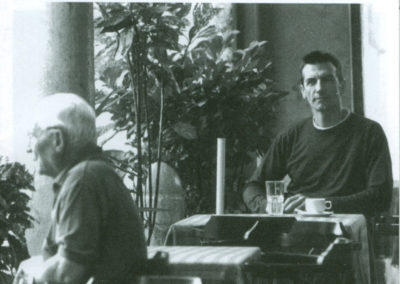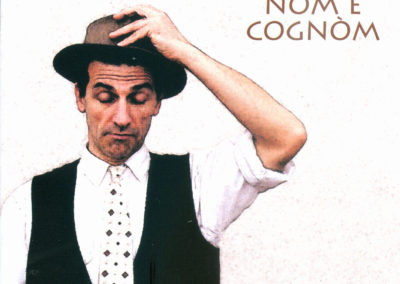CHARLIE CINELLI
BIOGRAFIA
Italiano
Il mio nome di battesimo è Giancarlo, sono nato il 21 novembre 1958 a Sarezzo, nella Valtrompia in provincia di Brescia e dopo qualche lezione di musica alle elementari il maestro mi ha consigliato di lasciar perdere….il solfeggio non faceva per me ma ero affascinato dalle canzoni dei Pooh, Demis Roussos, Celentano e Battisti prima e dai Led Zeppelin poi nonché dalla chitarra elettrica imitazione Gibson di un mio coetaneo che la esibì un giorno sul palco del teatro parrocchiale suonando il magico riff di “The house of the rising sun”. Decisi subito che volevo anche io una chitarra, forse anche per il fatto che sembrava attrarre l’attenzione delle ragazze. Iniziai così a imparare i primi accordi nella bottega del barbiere, poi con un insegnante vero e poi con gli amici che già conoscevano James Taylor, C S N & Y, ma anche Genesis, Jethro Tull e Emerson Lake & Palmer. Mi piacevano anche De André, De Gregori e Francesco Guccini e cantavo le loro canzoni insieme agli amici del paese. Un giorno sul giradischi di un amico appunto finì un album di Miles Davis, poi uno di Gerry Mulligan, poi Charlie Parker e ci appassionammo al jazz decidendo addirittura di formare il nostro primo gruppo che chiamammo Bluesettes. Qui mancava il basso quindi, come sempre accade in questi casi, qualcuno si deve prendere l’onere di accollarsi il poco appariscente strumento. Mi iscrissi addirittura al conservatorio dove per un paio d’anni studiai contrabbasso ma poi il servizio militare obbligatorio mi portò via. Al ritorno optai per la musica leggera unendomi al gruppo che accompagnava Iva Zanicchi…Avevo voglia di andare, evadere, esplorare e conoscere il mondo. Iniziai così una serie di esperienze che mi portarono, suonando di tutto e con gruppi di ogni genere, in giro per l’Europa. In Inghilterra mi sposai e rimasi per alcuni anni tra Londra e la Cornovaglia, suonando in locali di ogni tipo e con formazioni che andavano dal trio jazz al gruppo country&western, alla big band stile Glenn Millertutti in divisa…
Durante questo periodo iniziai a scrivere canzoni in dialetto, forse per via della nostalgia di casa, infatti un giorno tornai in Italia, oltre a lavorare come session player in Rai, Mediaset e in studio per vari artisti (Lavezzi, Vanoni, Mina, Zucchero, Cocciante, Zero ecc) formai un trio i Charlie & the Cats che proponeva un insolito mix di dialetto e inglese in salsa rock. Ero passato alla chitarra e ci sono rimasto anche quando, nel 1998, ho prodotto il mio primo album solo (Törölölö) una raccolta di canzoni mie in chiave acustica, introducendo anche la fisarmonica e il mandolino. Da allora mi piace spaziare tra i generi a seconda dell’esigenza, mi piace il suono della mia Valley Arts nel Marshall imballato quando suono con i Cats ma mi piace molto anche accarezzare la mia Gibson J200 per raccontare le storie in dialetto durante i concerti folk. Continuo anche a sentirmi un bassista, infatti appena posso imbraccio il mio vecchio Fender Jazz che in Inghilterra avevo fatto modificare con gli EMG, e mi inserisco in ogni tipo di formazione, funk, reggae, blues o rock. Insomma per me è importante suonare, mi sento privilegiato per il fatto di poter proporre sempre il mio repertorio. Qualcuno mi dice che la maggior parte della gente non capisce i testi delle canzoni in inglese ma le ascolta lo stesso quindi dovrebbe fare altrettanto con le canzoni in dialetto…. secondo me qui entriamo in un ginepraio, ma se ti va di addentrarti buon ascolto.
English
My first name is Giancarlo, I was born on November 21, 1958 in Sarezzo, in Valtrompia in the province of Brescia and after a few music lessons in elementary school the teacher advised me to let it go. In fact, solfeggio was not really for me however I was fascinated by the songs of Pooh, Demis Roussos, Celentano and Battisti first and by Led Zeppelin then as well as by the Gibson imitation electric guitar of a friend of mine who performed it one day on the stage of the parish theater playing the magical riff of “The house of the rising sun”. I immediately decided that I also wanted a guitar, perhaps also due to the fact that it seemed to attract the attention of girls. So I started learning the first chords in the barbershop, then with a real teacher and then with friends who already knew James Taylor, C S N & Y, but also Genesis, Jethro Tull and Emerson Lake & Palmer. I also liked De André, De Gregori and Guccini and I sang their songs with friends from the village. One day on a friend’s turntable I happened to listen to an album by Miles Davis, then one by Gerry Mulligan, then Charlie Parker and we became passionate about jazz even deciding to form our first group which we called Bluesettes. The bass was missing here so, as always happens in these cases, someone has to take the burden of taking on the inconspicuous instrument. I even enrolled in the conservatory where I studied double bass for a couple of years but then the compulsory military service took me away. On my return I opted for pop music, joining the group that accompanied Iva Zanicchi… I wanted to go, escape, explore and get to know the world so I began a series of experiences that brought me, playing everything and with groups of all kinds, around Europe. In England I got married and stayed for a few years between London and Cornwall, playing in clubs of all kinds and with groups ranging from jazz trio to country & western group, to Glenn Miller style big band all in uniform …
During this period I began to write songs in dialect, perhaps due to homesickness, in fact when the marriage ended I returned to Italy, as well as working as a session player in Rai, Mediaset and in the studio for various artists (Lavezzi, Vanoni, Mina, Zucchero, Cocciante, Zero etc.) I formed the trio “Charlie & the Cats” which offered an unusual mix of dialect and English in a rock sauce. I had switched to the guitar and I also stayed there when, in 1998, I produced my first solo album (Törölölö) a collection of my own songs in an acoustic key, also introducing the accordion and the mandolin. Since then I divide between the two genres according to the need, I like the sound of my Valley Arts in the packed Marshall when I play with the Cats but I also really like stroking my Gibson J200 to tell the stories in dialect during folk concerts . I also continue to feel like a bassist, in fact as soon as I can I take up my old Fender Jazz that I had modified with the EMGs in England, and I insert myself in any kind of formation, funk, reggae, blues or rock. In short, it is important for me to play, I feel privileged to be able to always offer my repertoire. Someone tells me that most people do not understand the lyrics of the songs in English but they listen to them anyway so they should do the same with the songs in dialect but in my opinion here we enter a hodgepodge, forget it… or if you want to go into it, good listening.
